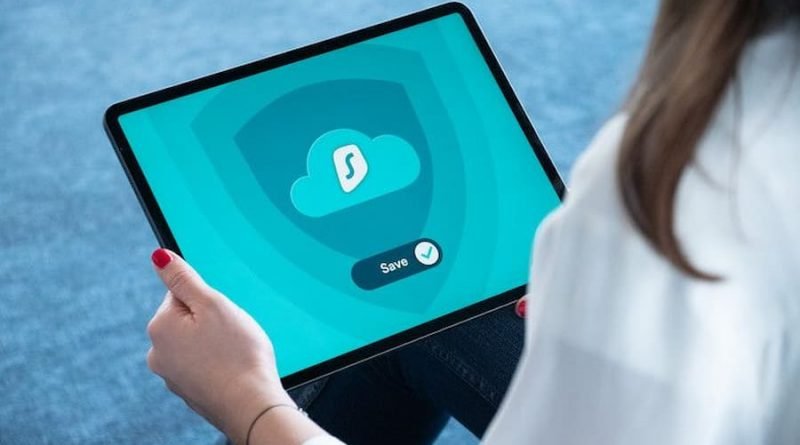Is An iPad VPN As Good As A Desktop VPN?
An iPad VPN and a desktop VPN almost serve the same purpose. The best part is that both operating systems have excellent VPN support.
Basically, any device that is connected to the internet requires a VPN. The tool helps keep you safe and unblock any restricted content you may need to watch from apps such as Netflix, Disney Plus, HBO Max, and more.
In most cases, you find iPads are regularly connected to public Wi-Fi networks compared to desktops; thus, having the best VPN services for iPad would greatly help to secure your data on public networks in cafes, hotels, libraries, etc.
And none other VPN can do the job more effectively than the most reputed ExpressVPN. The service proves to have blazing connection speeds. Again, it adds a layer of privacy and security; you don’t have to fear malware attacks or data leaks.
In this article, we compare the use of VPN on iPads and desktops, any limitations, and how to deal with a VPN not working on each device:
Comparisons Between an iPad VPN and a Desktop VPN
There are many reasons you should have a VPN on either an iPad or a desktop. For starters, a VPN protects you from unsecured networks, helps you access geo-restricted websites, and keeps you anonymous while browsing the internet.
If you find yourself having issues with poor connection, buffering, lags, and other internet-connected problems, it’s high time you look for a premium VPN.
You can comfortably use a VPN on your iPad for the same reason you would do for a desktop. A VPN works on both to:
- Unblock restricted content.
- Provide security to avoid data breaches or password leaks, especially on public Wi-Fi connections.
- Protect your privacy; hide your location so no one can see what you’re browsing.
While users will claim to have the same experience on their iPads or desktops with a VPN, there are a few differences when it comes to using a VPN on an iPad over a desktop.
Limitations of using VPNs on iPads over Desktops
Using a VPN on your iPad is quite simple. But, you require a good VPN such as ExpressVPN. The VPN works well with iPads OS 12, 13, 14, and 15. You only need to download the app, and configurations are easy. But here is the catch:
- iPads don’t support split tunneling: This happens because of the restrictions placed on the iOS platform. It doesn’t support such consumer VPN services. The feature is only available to those apps that use a mobile device management solution (MDM).
On the other hand, macOS desktop apps support split tunneling very well. You can enable it through Windows 8-10 built-in settings without hassle. Thus you enjoy two connections at the same time.
- An unpatched iOS bug currently discovered blocks VPN apps from encrypting your internet traffics. This greatly affects those using iPads and iPhones.
Initially, the bug was on iOS version 13.3.1. But now the bug has made its way to the latest iOS version, 13.4. Fortunately, there are improvements underway for the same.
Despite the few limitations faced by iPad users among other iOS devices, there is still more to be enjoyed.
Having a good VPN works well, and you hardly note any difference in the core functionality when using an iPad VPN or a desktop VPN. However, if you encounter issues, we’ve detailed some proven fixes below:
How to fix issues VPN issues on iPad and desktop
Several iPad and desktop users complain about encountering issues with their VPN connection. If you’re experiencing a similar issue, it could be rooted in the type of VPN you’re using.
Below are a few proven solutions to fix the VPN on your iPad and desktop:
Fix VPN not working on iPad
Follow the below steps to fix your iPad not working with a VPN:
- Turn off the VPN and turn it back on.
- Update your VPN app and your iPad.
- Uninstall and reinstall the VPN app.
- Reset your network settings.
- Avoid using a free VPN. Always stick with a premium VPN.
If nothing works, you can contact your VPN service provider.
Fix VPN not working on Desktop
If your desktop has issues with a VPN, try the below:
- Check if your regular network connection is working fine.
- Try another VPN server.
- Uninstall and reinstall the VPN app.
- Disable IPv6 Protocol.
- Turn the Windows Defender firewall on or off.
If you still have issues contact your VPN service provider.
Conclusion
VPNs are one handy software that helps to enhance your experience over the internet. Whether you’re using it on a desktop or an iPad, it serves the same purpose – securing your connection and providing the online freedom we all desire.
Since the two operating systems are built differently, iPad VPN may lack two or three features than desktop VPN, but the core job remains the same. Therefore, we concluded that a desktop VPN has more valuable features than an iPad VPN.
If you happen to be using either of the two, let us know your experience in the comment box below.

